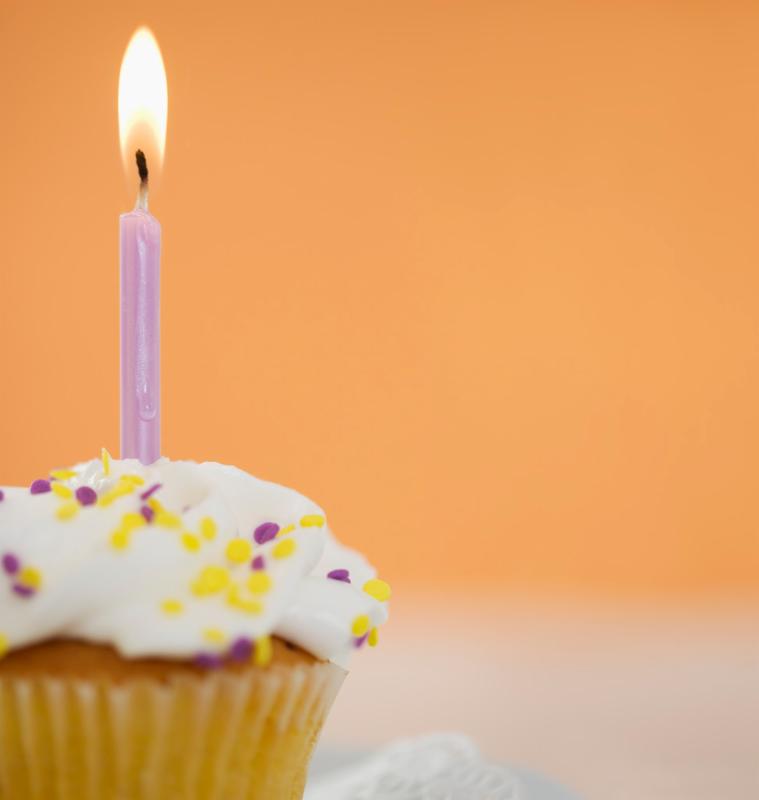News - Wayne RESA
January 2017 GLOBE News Brief
Happy 2017 to the GLOBE Community
Make it Your New Year's Resolution to Attend the 21st GLOBE Annual Meeting
in New Haven, Connecticut USA
Save the Dates: 30 July - August 3 for the 21st GLOBE Annual Meeting
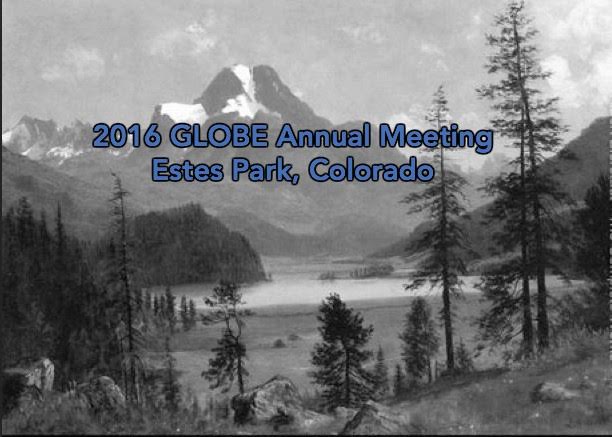
The Annual Meeting provides a wonderful opportunity to to meet GLOBE teachers, sponsors, students, partners, country coordinators, friends and supporters from throughout the world. You are all invited. Click here to reach the media page where you can view a musical slideshow of last year's event -- which is sure to inspire you to attend in 2017. (Turn up the volume.)
http://www.globe.gov/support/media/videos
News
21st GLOBE Annual Meeting Headquarters
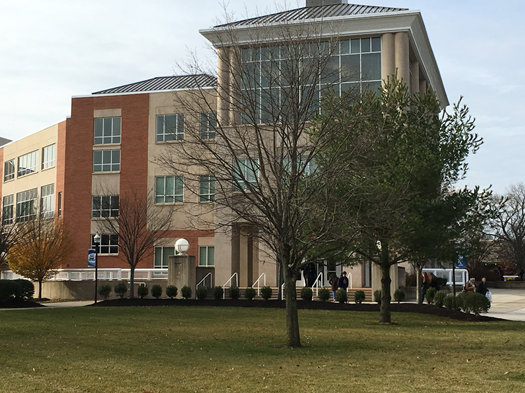
The 21st GLOBE Annual Meeting will be held in New Haven, Connecticut, at the campus of Southern Connecticut State University (SCSU). The theme of the meeting is: "Coastal Resilience in Urban Environments." Host and GLOBE Partner Scott M. Graves, Ph.D. and his colleagues at SCSU are sure to make the experience memorable. More information, and updates, will be coming soon.
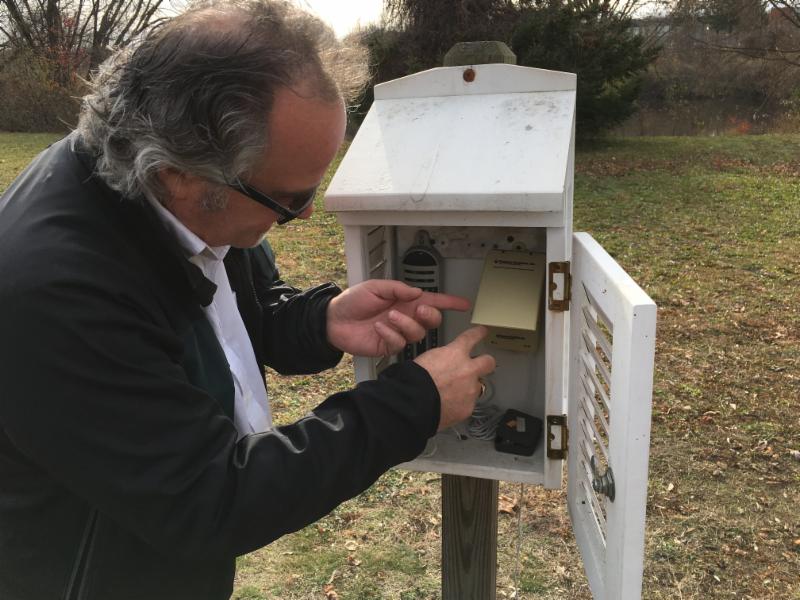
2017 International Virtual Science Symposium Updates
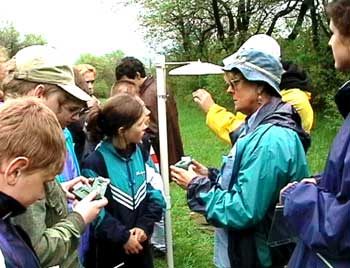
IVSS Now Accepting Student Reports!
The 2017 GLOBE International Virtual Science Symposium (IVSS) is now accepting student reports. Reports will be accepted from 03 January through 03 April.
New Upload Tool Available!
To help in this scientific and educational endeavor, a new IVSS Upload Tool is now available! Just click on the "Upload Your Research Report" button available here, and add your report. (Make sure to select "International Virtual Science Symposium" as the type of report and select up to three optional badges.)
IVSS Hosting Badges Informational Webinar!
GLOBE will be hosting an IVSS "Badges Informational Webinar" on 18 January 2017 at 11:00 a.m. MT (1:00 p.m. ET). Join Matt Silberglitt and Svetlana Darche, both of WestEd, for an in-depth look at the badges for the 2017 IVSS. Save this link to join the webinar: (https://zoom.us/j/513741764). (The webinar will be recorded for later viewing.)
IVSS Timeline:
- Informational Webinar: 19 October 2016
- Rubrics posted: 04 November 2016
- K-4 (Lower Primary) Webinar: 07 December 2016
- Reports accepted for submission: from 03 January 2017 to 03 April 2017
- Reports and presentations due: 03 April 2017
- Judging and comment period: 23 - 29 April 2017
- Scores and badges announced: 15 May 2017
Have a question about the IVSS? Check out the FAQs. If you have question that aren't included in the FAQs, please send them to help@globe.gov.
Are You an Official GLOBE ENSO Student Research Campaign Member? If Not, Join Today.
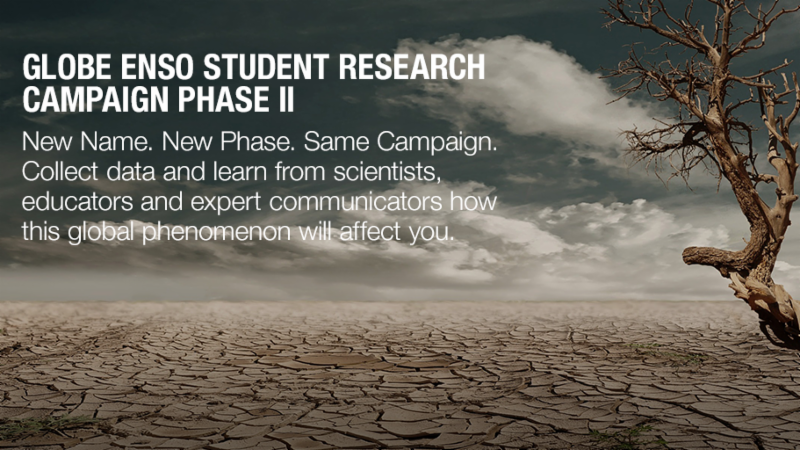
Are you an OFFICIAL MEMBER of the GLOBE ENSO Student Research Campaign? If not, you are missing out on vital updates and potential collaboration with other GLOBE schools from around the world. The El Niño-Southern Oscillation (ENSO) campaign is designed to engage students in determining where, and how much, El Niño affects local places and to put students in contact with their local environment. CLICK HERE TO JOIN TODAY.
Check out the new GLOBE ENSO Campaign ePacket. This ePacket will introduce you to the campaign, highlight how you can get involved, and show you how to collaborate and take the data collection to the next level.
Catch up on the latest blogs and upcoming webinar information.
Pay it Forward -- Become a GISN Member
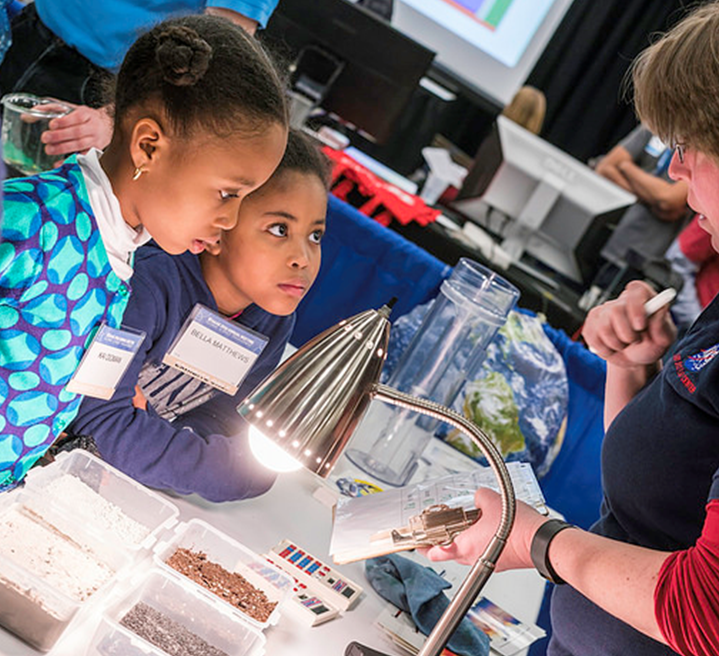
Would you like to guide the next generation of students while getting the word out about your research? As preparations are underway for the 2017 GLOBE IVSS (with submissions from January through April) and the U.S. Regional Student Research Symposia (which take place from 27 April through 03 June), GLOBE students are looking for guidance from members of the GLOBE International STEM Network (GISN) scientists.
Interested in joining this network? Find out how to become a member of the GISN.
Do GLOBE Citizen Scientists Bring NASA into the School Yard? Read
the Latest IEEE Article to Find Out.
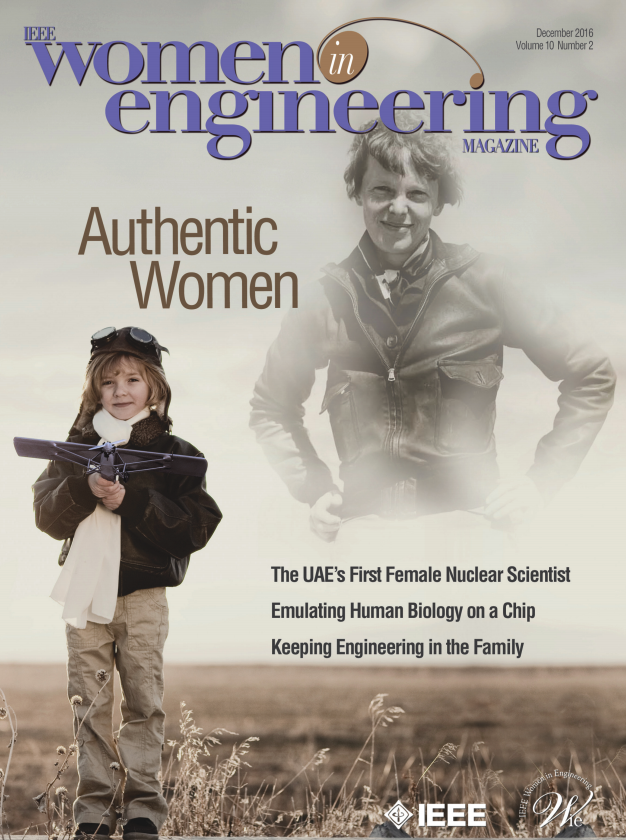
Where can teachers bring students for age-appropriate hands-on activities that will introduce them to the science that makes up our world? To The GLOBE Program, of course.
Read the latest IEEE Women in Engineering Magazine article and dive into the GLOBE-NASA adventures of Peter Falcon, an Earth science outreach coordinator at NASA's Jet Propulsion Laboratory in Pasadena, California, USA.
Click here to read the magazine in your browser.
Click here to download the magazine to your computer.
Register as a GLOBE Alumnus

If you have participated in GLOBE as a student, we encourage you to register to become a member of the GLOBE Alumni Organization. GLOBE Alumni assist with local implementation of The GLOBE Program in schools and their communities. Alumni may work directly with the GLOBE Country Coordinator in their country or U.S. Partners in their state, as well as with teachers, students, and scientists who want to collaborate with schools in their local area.
Stay connected by joining the growing GLOBE Alumni Organization today.
● I'm interested, contact me.
Opportunities for U.S. Teachers
U.S. opportunities are often highlighted in the News Brief simply because we are more aware of them through our local media; however, if there are opportunities for GLOBE students and/or teachers in your region you would like us to highlight in the coming months, please send the information to: communications@globe.gov.
NASA STEM Educator Webinars
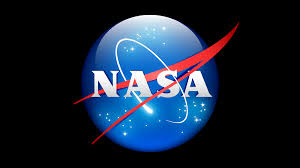
GLOBE Community: Thank You for Participating in the GLOBE Data Quality Challenge 2016
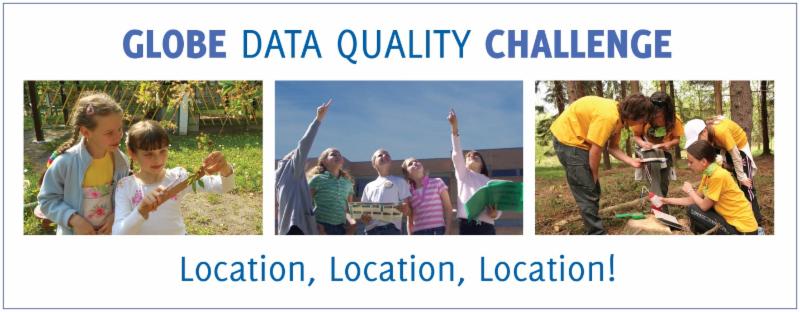
GLOBE would like to thank all of the community members who participated in the Data Quality Challenge! Your work in comparing site locations associated with your account, and correcting the ones that needed to be corrected, is greatly appreciated. Data entry is about quality as much as quantity.
And even though there may not be an official "Data Quality Challenge" going on -- the goal is to always have community members checking data for accuracy. Your diligence in this area is greatly appreciated.
BONUS: All of those who participated in the challenge have received a special participation badge - which has now been posted on your profile.
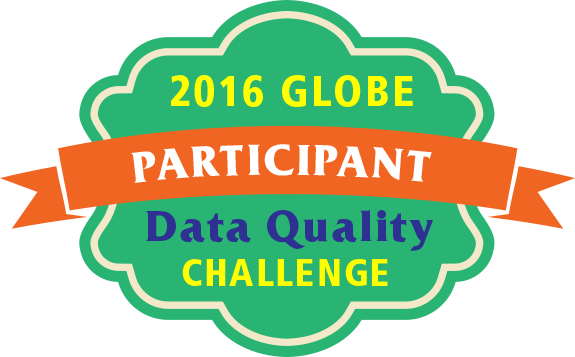
GLOBE Country Coordinators, Partners, Teachers, Scientists: Please Complete Annual Survey by 10 February 2017

The GLOBE Implementation Office is inviting all GLOBE partners, country coordinators, teachers, and scientists to participate in the GLOBE Annual Survey. Your feedback to questions, developed with the help of the Working Groups, provides the data we need to better serve you in the years ahead.
Please take a few minutes of your time complete the survey. It is expected to take:
- 15 - 20 minutes for partners, country coordinators;
- 10 - 15 minutes for teachers; and
- 05 - 10 minutes for scientists.
Click on this link to enter the survey. (PLEASE NOTE: It is important to complete the survey in one sitting, as your responses will NOT be saved if you exit the survey prior to completion.)
The deadline for completing the survey is 10 February 2017.
GLOBE Teachers! New Atmosphere and Biosphere Learning Activities: GLOBE Data Explorations
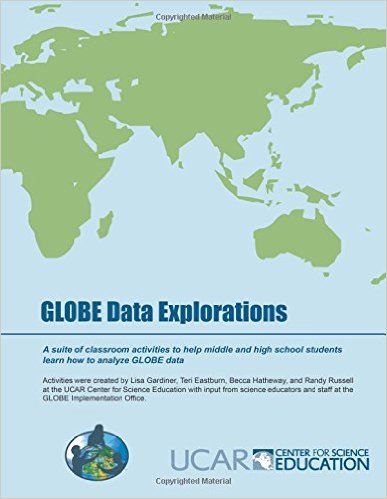
GLOBE is pleased to offer nine new learning activities for your classroom - available in the GLOBE Teacher's Guide under Atmosphere and Biosphere. These "GLOBE Data Explorations" are classroom activities developed by the UCAR Center for Science Education, a GLOBE partner, to help students learn how to analyze GLOBE environmental data while also learning atmospheric science concepts and geography.
These new activities have been reviewed by science educators and staff at the GLOBE Implementation Office and, of course, they have been field tested by teachers.
In order to access the new activities click here (or visit: http://globe.gov/do-globe/globe-teachers-guide). Then, go to the "Teacher's Guide Search" box and type in (using quotes): "data exploration." A book version of the nine activities is also available by clicking here (or by visiting: https://www.amazon.com/GLOBE-Data-Explorations-Lisa-Gardiner/dp/1535144467).
United States Regional Student Research Symposia: 27 April 2017 - 03 June 2017
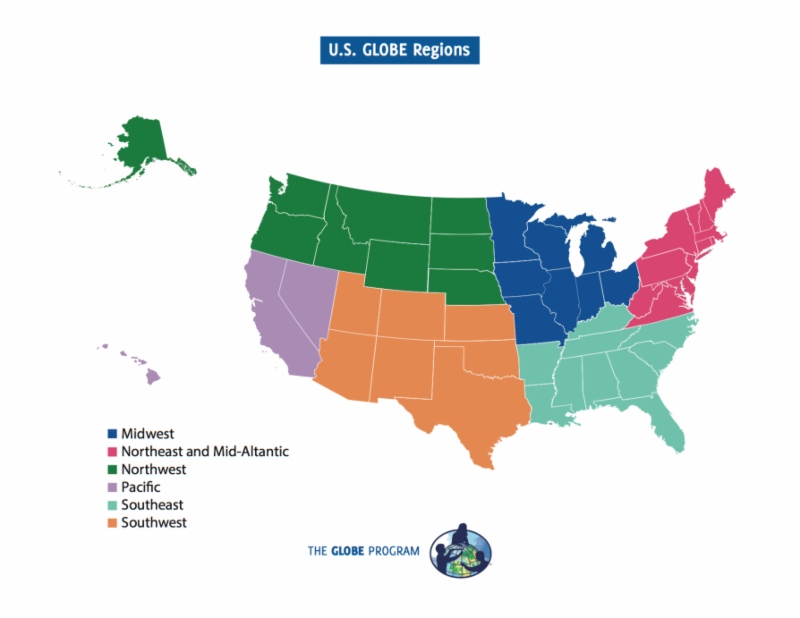
Thanks to a grant from the National Science Foundation, students from across the United States have the opportunity to come together at one of six face-to-face regional science symposia (formerly regional science fairs) to share the results of field investigations using GLOBE program protocols. The competition grade spans are: grades 5-8 and grades 9-12.
Leading up to the science symposia, GLOBE teachers can attend live webinars (or view the archive) providing professional development on field investigations and enhancing scientific practices of the natural sciences in classrooms.
For the latest timeline, and to stay informed on science symposia developments, please follow this page. GLOBE teachers: If you are interested in attending with a group of students, please indicate your interest using this Google Form: https://goo.gl/forms/CDhrme1G3WBeGkSs1.
Keeping Up With the Urban Heat Island/Student Research Campaign? Read Dr. C's Latest Blog.
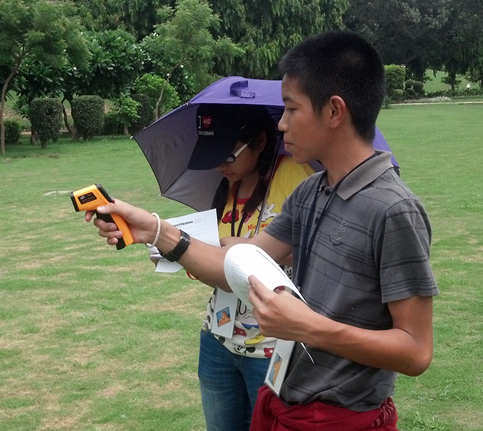
The GLOBE Program hosted the annual Urban Heat Island/Student Research Campaign (formerly known as the Surface Temperature Field Campaign) from 01 - 31 December 2016. Want to know more about the campaign - and the results? Read the latest blog by Dr. Kevin Czajkowski (Dr. C), campaign scientist.
Students have used the surface temperature field campaign data to do research projects from fourth grade up to graduate students at universities. The continued expansion of this student research campaign will help students of all ages answer interesting and important research questions, including:
- How do parking lots affect surface temperature?
- How does the height of grass affect the temperature?
- What is the best color for a playground to keep it cool for the students? (This project was first done by students in the Dominican Republic.)
- How does the surface temperature of grass at one school (urban or rural) compare to the surface temperature of grass at another school?
GLOBE's Cloud Protocol Gets an Update in January 2017 -- Stay Tuned
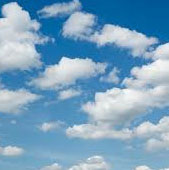
The GLOBE Cloud Protocol is getting an update in January of 2017.
With a new year comes new capabilities for satellite matching. NASA, in collaboration with The GLOBE Program, is enhancing the Cloud Protocol with updated data fields to build a robust data set and to help scientists around the world better understand the role of clouds in our Earth's system.
The GLOBE Program is most excited about the newest feature of the updated protocol: SATELLITE DATA COMPARISON! As a GLOBE participant, you will have access to NASA satellite data at your fingertips. A team from the NASA Langley Research Center will align your ground observations with data from satellite instruments and then send the matched data right to you for comparison.
The update will be released in January 2017, and we cannot wait to bring you this authentic science experience and direct connection to NASA missions. Until then, happy observing.
Upcoming 2017 GLOBE Teacher Training Workshops
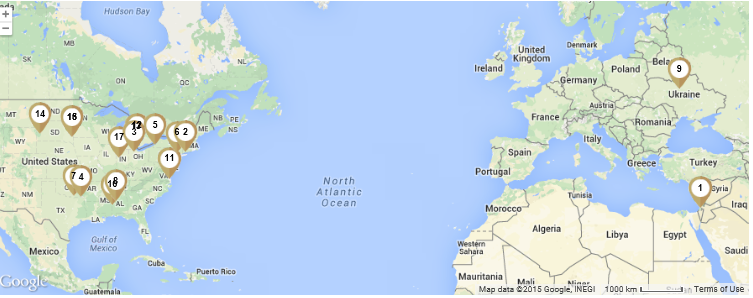
Upcoming GLOBE teacher training workshops include:
- Fayetteville, Arkansas, USA (UA Center for Math and Science Education): 09-10 January (potential restricted attendance)
- Riga, Latvia (Academic Center for Natural Science of the University of Latvia): 20 January (restricted to teachers in the region)
- Dothan, Alabama, USA (Kelly Springs): 17 February (restricted to teachers in the region)
- Flushing, New York, USA (Queens College): 21-23 February (restricted to teachers in the region)
- Boulder, Colorado, USA (GLOBE Implementation Office): 13-17 March (TTT U.S. Partnership Bootcamp)
- Grand Forks, North Dakota, USA (UND Clifford Hall): 27 July - 01 August (open to all teachers)
Connect With Us
The GLOBE Program depends on you to let us know what is happening in your regions, countries, communities and classrooms. Send us news you would like to share with the GLOBE Community and we'll include it in next month's News Brief. Be sure to include photos, too.
Send your message to communications@globe.gov
Be sure to follow us on social media! Just click on the icons below.
News Topics: News Briefs type: globe-news
News origin: GLOBE Implementation Office







